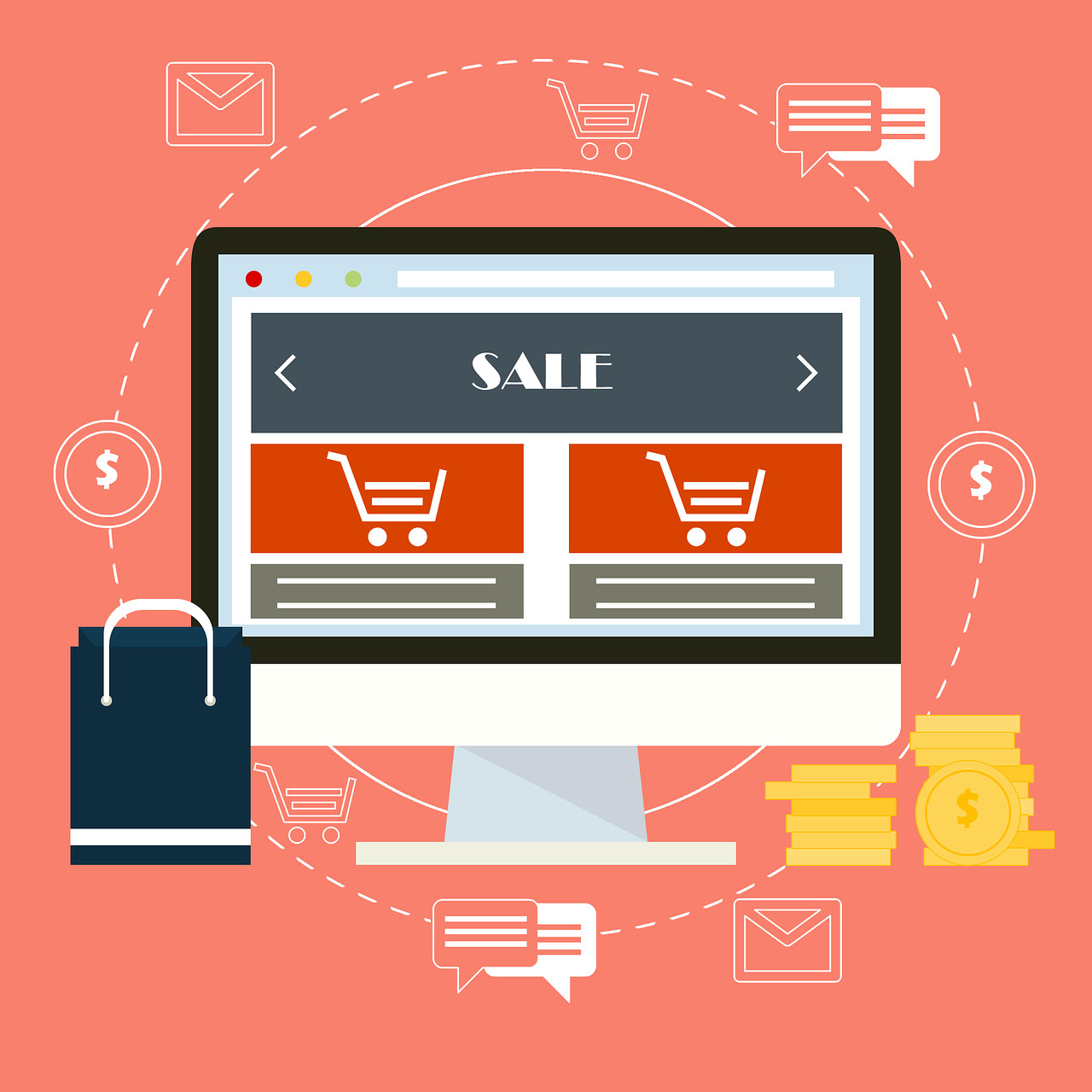Setting Up Shop: Top 7 E-Commerce Website Builders

The world of e-commerce is booming, and for good reason. Consumers are increasingly turning to online shopping for convenience and product variety. If you're a business owner or entrepreneur with products to sell, establishing an online store can be a fantastic way to reach a wider audience and boost your sales.
But building an e-commerce website can seem daunting. Thankfully, e-commerce website builders have emerged as a powerful tool, allowing anyone to create a professional and functional online store without needing complex coding knowledge.
These platforms offer user-friendly interfaces with drag-and-drop features, making it easy to design your store, add products, and manage your inventory. They also handle many of the technical aspects like secure payment processing and shopping cart functionality.
However, with a plethora of e-commerce website builders available, choosing the right one for your business needs can be confusing. This blog post dives into the top 7 e-commerce website builders, analyzing their strengths, weaknesses, and suitability for different types of businesses.
What to Consider When Choosing an E-Commerce Website Builder:
- Ease of Use: How user-friendly is the platform? How easy is it to add products, manage inventory, and customize your online store?
- Features: What built-in e-commerce functionalities are available? Does it offer features like product management, discount codes, shipping options, etc.?
- Scalability: Can the platform accommodate your business growth? Does it offer upgrade options for features and storage capacity?
- Payment Processing: Does the platform integrate with popular payment gateways like PayPal or Stripe? Are there any transaction fees associated with the platform?
- Pricing: What are the pricing plans, and do they fit your budget? Do they offer free trials or money-back guarantees?

Top 7 E-Commerce Website Builders
1. Shopify (The E-Commerce Powerhouse)
Shopify is a leading e-commerce platform renowned for its robust features, scalability, and user-friendly interface. It's a popular choice for businesses of all sizes, from small startups to established brands.
Pros:
- Comprehensive set of e-commerce features for managing products, inventory, and orders.
- Integrates seamlessly with various apps and marketing tools for increased functionality.
- Scalable platform that can accommodate significant business growth.
- Strong security features for secure transactions and customer data protection.
- Offers a dedicated app store with solutions for marketing, shipping, and other needs.
Cons:
- Pricing can be higher compared to some competitors for basic plans.
- Limited design flexibility compared to some website builders with a focus on e-commerce functionality.
- Steep learning curve for some of the advanced features.
Suitability: Shopify is ideal for serious e-commerce businesses of all sizes seeking a feature-rich, scalable platform. It's a good choice for those prioritizing robust functionalities and security for managing an online store.
2. BigCommerce (Enterprise-Ready E-Commerce)
BigCommerce is another heavyweight in the e-commerce website builder arena, catering to businesses with high-volume sales and complex needs. It offers a powerful platform with advanced features and scalability for large online stores.
Pros:
- Designed to handle large product catalogs and high-volume sales.
- Robust built-in features for inventory management, SEO tools, and marketing automation.
- Highly customizable platform for creating a unique online shopping experience.
- Integrates with various e-commerce tools and shipping carriers.
- Offers open API access for developers to further customize the platform.
Cons:
- Pricing plans are higher compared to some competitors, geared towards enterprise-level businesses.
- Steeper learning curve compared to some e-commerce website builders.
- May be overkill for small businesses with limited product offerings.
Suitability: BigCommerce is a strong choice for established businesses with large product catalogs and high sales expectations. It's ideal for those needing robust features and customization options for a sophisticated online store.
3. Sellfy (Simple Selling for Creators)
Sellfy caters to a specific niche: creatives and digital product sellers. It offers a streamlined platform perfect for selling digital products like ebooks, music, or online courses.
Pros:
- User-friendly interface designed specifically for selling digital products.
- Easy integration with popular membership platforms and email marketing tools.
- Built-in features for managing subscriptions, customer accounts, and digital downloads.
- Affordable pricing plans with no transaction fees on most plans.
- Simple embed codes allow you to sell products directly on your existing website.
Cons:
- Limited functionalities compared to general e-commerce platforms.
- Not ideal for selling physical products.
- Less customization options compared to some competitors.
Suitability: Sellfy is a perfect fit for creatives, musicians, educators, and anyone selling downloadable products. It's ideal for those who prioritize ease of use, affordability, and a streamlined platform specifically designed for digital goods. However, if you're selling physical products or require extensive customization options, you might want to explore other e-commerce website builders on this list.
- Wix
Wix is a popular website builder that offers robust e-commerce features alongside its core website creation functionalities.
Pros:
- User-friendly drag-and-drop interface with a vast library of pre-designed templates for a professional look.
- Wide range of features for managing products, inventory, and online payments.
- Built-in marketing and SEO tools for promoting your online store.
- Integrates with various third-party apps for additional functionality.
- Scalable plans to accommodate growth.
Cons:
- Design flexibility can be limited by the chosen template.
- Switching templates later might require rebuilding your store content.
- App integrations can add to the overall cost.
- Wix takes a transaction fee on lower-tier plans.
Suitability: Wix is a good choice for entrepreneurs and small businesses that want a user-friendly platform with built-in e-commerce functionalities. It's ideal for those who prioritize ease of use and a visually appealing storefront.
- Ecwid:
Ecwid is an e-commerce solution that integrates seamlessly with existing websites. It caters to businesses of all sizes, from startups to established brands.
Pros:
- Integrates with various platforms like WordPress, Wix, Squarespace, and even social media channels like Facebook.
- User-friendly interface with a drag-and-drop editor for easy store setup and management.
- Offers a free plan for basic stores, with paid plans unlocking advanced features like product variants and abandoned cart recovery.
- Scalable solution that can grow alongside your business.
- Supports selling both digital and physical products.
Cons:
- Limited design flexibility compared to dedicated e-commerce platforms.
- Free plan has restrictions on features and product storage.
- Upgrading to higher tiers can become expensive for larger stores with extensive product catalogs.
- Managing inventory across multiple platforms might require additional effort.
Suitability: Ecwid is ideal for businesses looking for an easy-to-use e-commerce solution that integrates with their existing website. It's a good option for startups and businesses selling a moderate number of products.
- SquareSpace:
Squarespace is another popular website builder known for its beautiful templates and user-friendly interface. It offers e-commerce features suitable for selling a variety of products.
Pros:
- Award-winning design templates that create a sleek and professional online store.
- Easy-to-use interface for managing products, inventory, and customer orders.
- Built-in marketing tools like email marketing and abandoned cart recovery.
- Integrates with popular shipping carriers and payment gateways.
- Squarespace manages website hosting and security.
Cons:
- Design customization options are somewhat limited compared to some competitors.
- E-commerce features might not be as advanced as dedicated e-commerce platforms.
- Pricing plans can be more expensive for high-volume stores.
Suitability: Squarespace is a good option for creative businesses and entrepreneurs who prioritize a beautiful storefront and ease of use. It's suitable for selling a curated selection of products and managing them through a user-friendly platform.
- Weebly
Weebly is another website builder that provides e-commerce functionalities. It's known for its simple interface and affordability.
Pros:
- Easy-to-use drag-and-drop interface for building your online store.
- Affordable pricing plans with a free plan for basic needs.
- Integrates with popular payment gateways and shipping carriers.
- Built-in marketing tools like email marketing campaigns.
- Mobile-friendly website creation for a seamless customer experience.
Cons:
- Limited design flexibility compared to some competitors.
- E-commerce features might not be as powerful as dedicated platforms.
- Free plan has restrictions on features and customization options.
Suitability: Weebly is a good option for startups and small businesses that need a basic online store with a user-friendly interface and affordable price point. However, it might not be ideal for businesses requiring extensive customization or advanced e-commerce functionalities.
Those were our handpicked 7 best e-commerce website builder platforms. Good luck on your online business journey.




